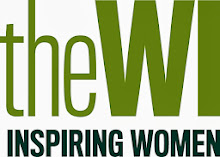I always knew that the WI was cool and never more so than now, with the ongoing furor surrounding meat. The WI's mandate on country of origin labelling – nicknamed COOL –was voted for at the 2010 NFWI AGM, and has resulted in talks with the legislators in Europe with partial success. However, we have always remained firm that the voluntary approach to country of origin labelling does not go far enough. It flies in the face of consumer expectation that a product can be labelled as coming from the country in which the last significant change took place. The essential messages that came from all of our discussions in Europe was that it was such a complicated process that to make country of origin labelling mandatory would doubtless mean much more administration on everyone's part, but we would all then know where all of any given product came from. It is interesting that in much of the news coverage of this ongoing issue, we still hear very little from the consumer.
I have no doubt that the topic of where our food comes from will be part of the next Great WI Food Debate to be held on Wednesday in conjunction with the Institute for Public Policy Research. Food waste is also high on the agenda when we discuss once again how the world will be fed by 2050. This is the third NFWI-led debate on food security, the first was with Secretary of State for the Environment Owen Paterson in York, and the second took place in Cardiff with members of the Welsh Assembly. Following tomorrow’s debate, talk to WI members in your area about plans locally.
I reiterate what the Norfolk Federation Chairman said in her piece in the Eastern Daily Press when she said that the WI is known for food. This will be proved once again when NFWI Vice Chair Anne Harrison brings her expertise on food to new TV show Food Glorious Food, that celebrates recipe ingenuity, flavour, presentation and sheer cooking talent; adjectives that apply both to Anne and to the WI.
A complete departure from food, or at least eating, but how do you make a cup of tea? Can you write down the steps you take to complete this task? The simple act of making a up of tea is something that thousands of us do every day but for some, when the memory is not like it was, even the simplest of tasks can become too difficult. Last week, I met with the Prime Minister in No 10 Downing Street with with representatives from the Fire Service, the Police, the RSA, and two Alzheimer Ambassadors, and we were given exactly this this exercise. We all have slightly different ways of making tea – do we use a tea pot, or just a cup or a mug? Do we fill the kettle with water before we get the cup from the board? Where is the kettle and where is the cupboard? All of these questions are relevant to someone who is suffering with dementia. To gain an insight into their situation, we went through this process along with another one – following swiftly spoken instruction to make an origami swan, which proved too difficult for any of us. Speaking slowly made all the difference, to us and to the swan.
These are just a couple of exercises that help to build up empathy and eventually some understanding of the cruel disease that strikes thousands of people each year, and as a Dementia Friend you can learn such insights and pass them on to your community or social group all in the interest of building up Dementia Friendly Communities. The Alzheimer website has all the details of how you too can become a Dementia Friend.
Subscribe to:
Post Comments (Atom)

No comments:
Post a Comment